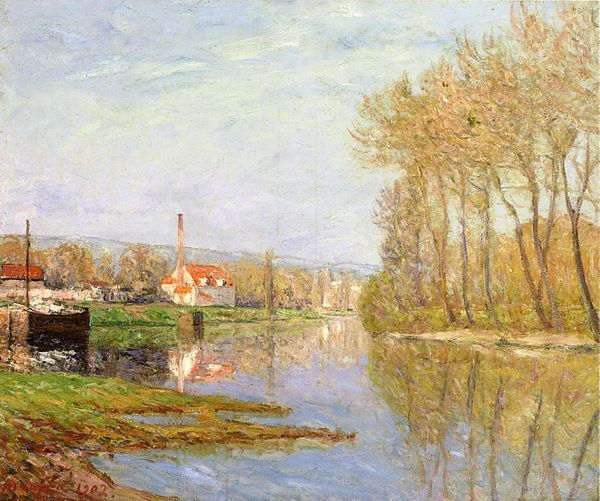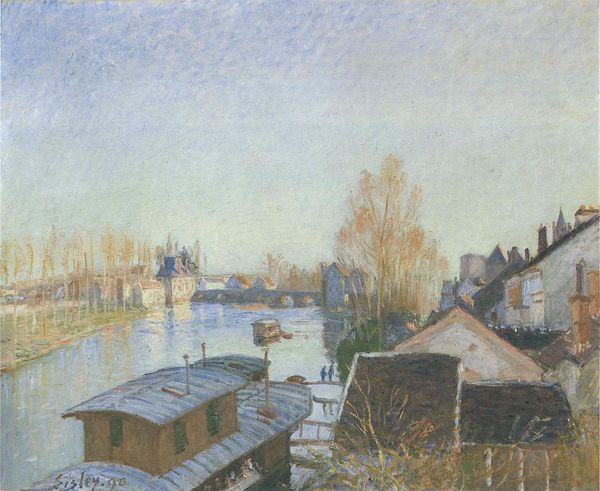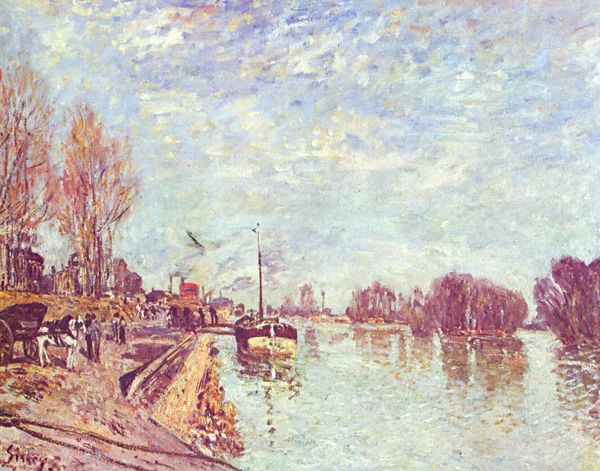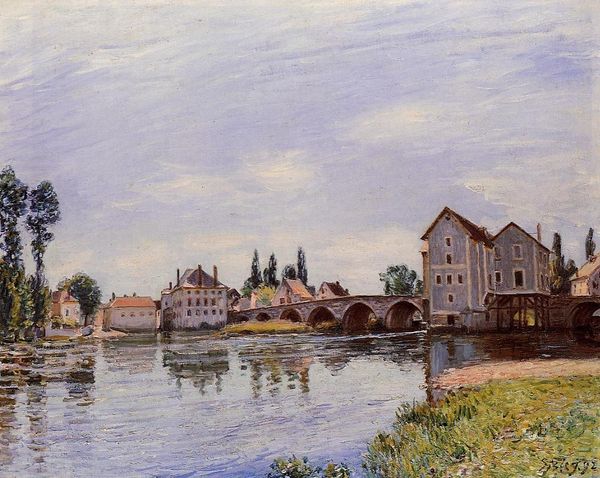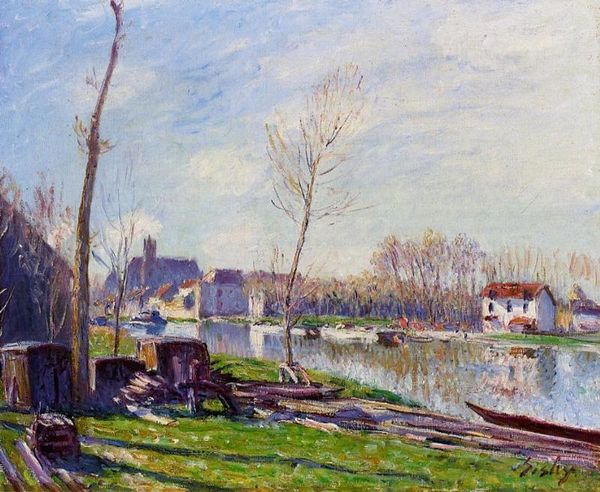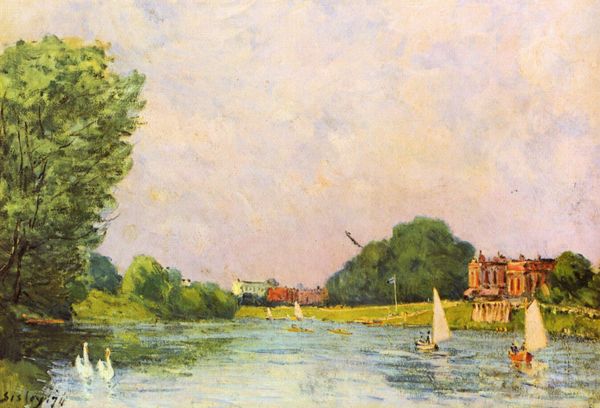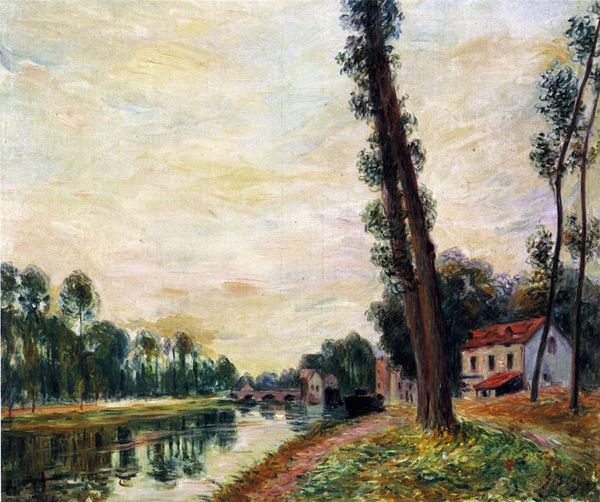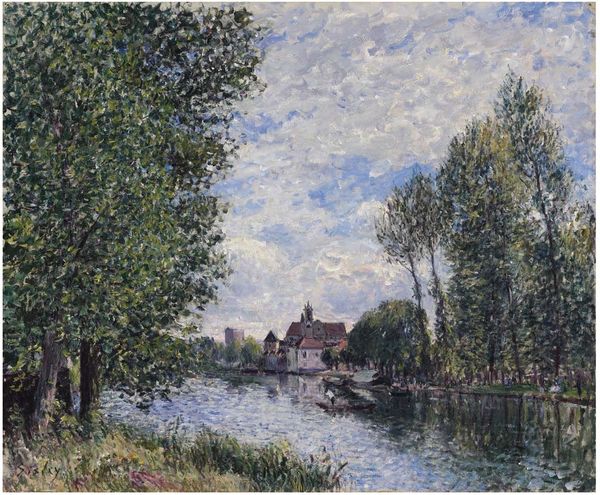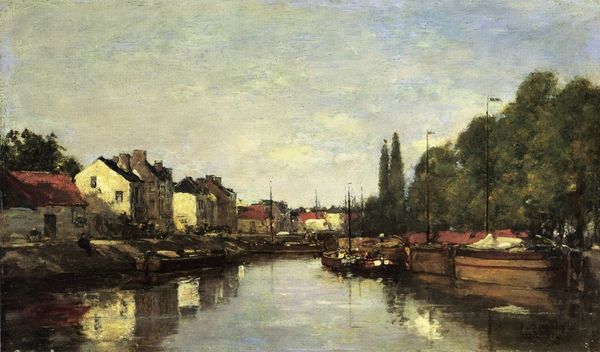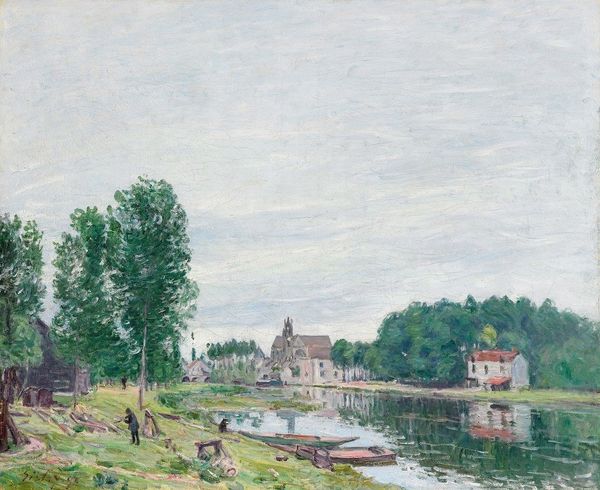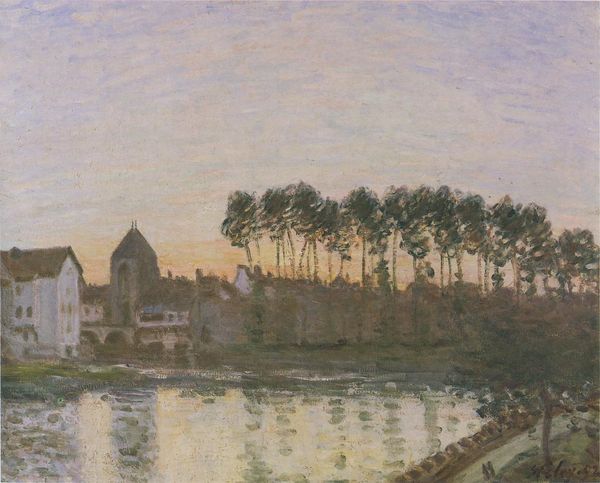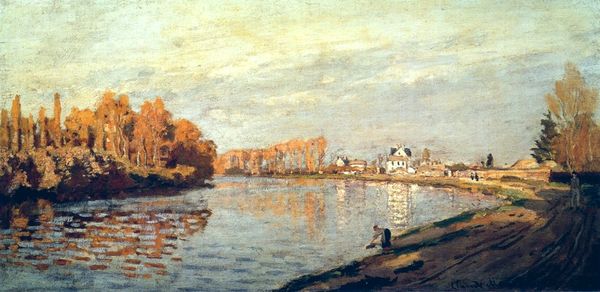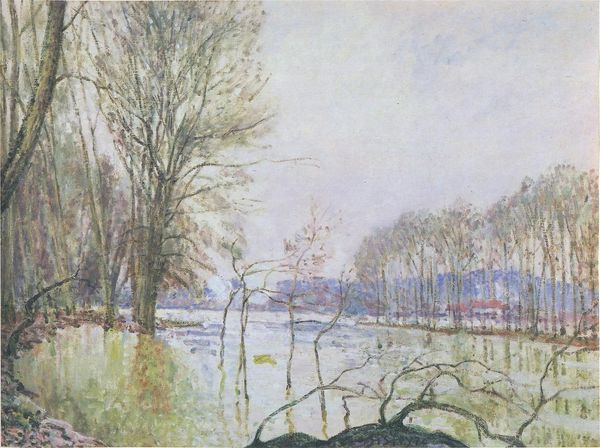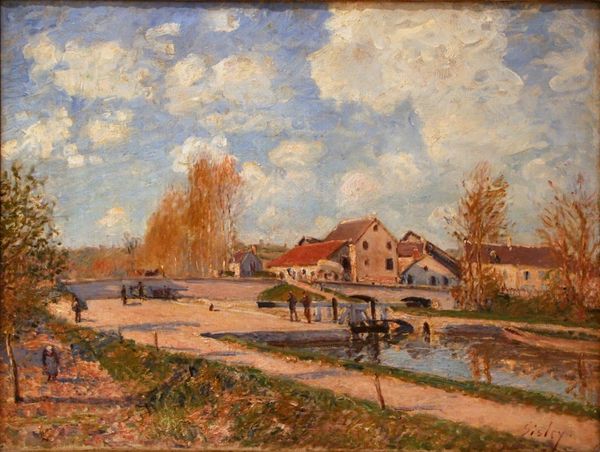
#
tree
#
sky
#
abstract painting
#
impressionist painting style
#
river
#
impressionist landscape
#
possibly oil pastel
#
oil painting
#
fluid art
#
acrylic on canvas
#
forest
#
seascape
#
water
#
painting painterly
#
watercolor
Dimensions: 54 x 65 cm
Copyright: Public domain
Editor: Here we have "The Loing at Moret, the Laundry Boat," painted by Alfred Sisley in 1890. It's currently held in a private collection. The muted tones create a tranquil feeling. What strikes me most is how ordinary the scene is – a river, some buildings, a boat. How do you interpret this work? Curator: The choice of such a mundane subject, "the Laundry Boat," is revealing. Consider the context: late 19th-century France saw increasing industrialization and urbanization. Sisley, and the Impressionists as a whole, often focused on capturing the fleeting moments of modern life, often outside of the metropolis. The seeming tranquility may in fact be a subtle commentary on the changing social and economic landscape. Editor: So, you’re saying this painting might be subtly political? Is it celebrating or critiquing the slower pace of life outside of the cities? Curator: It’s a possibility worth considering. Notice how the composition is structured. The laundry boat is prominent, but so is the town in the distance, with the bridge acting as a connector. Sisley may be hinting at the interconnectedness of these seemingly separate worlds. And how do you think public access and visibility to this kind of work play into Sisley's narrative? Editor: I suppose it invites us, the viewers, to consider our relationship to both nature and the urban environment and to reflect on what modern life meant then and still means today. Curator: Precisely. And beyond personal reflection, Sisley prompts collective questioning on community development and the role art can have in recording socio-political change. Editor: That gives me a lot to think about regarding art’s function in social discourse. Curator: And hopefully a different appreciation for what you consider a 'mundane' scene. The everyday holds complexities often missed!
Comments
No comments
Be the first to comment and join the conversation on the ultimate creative platform.
